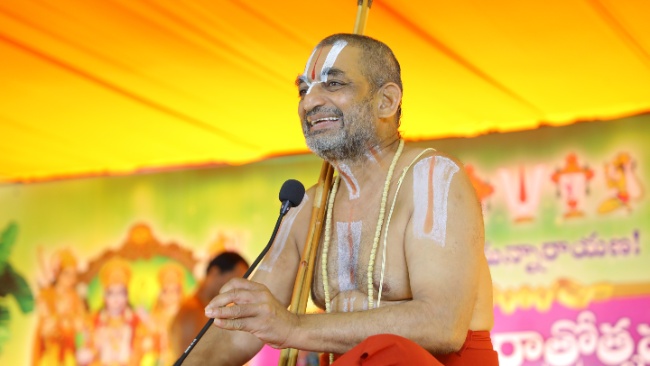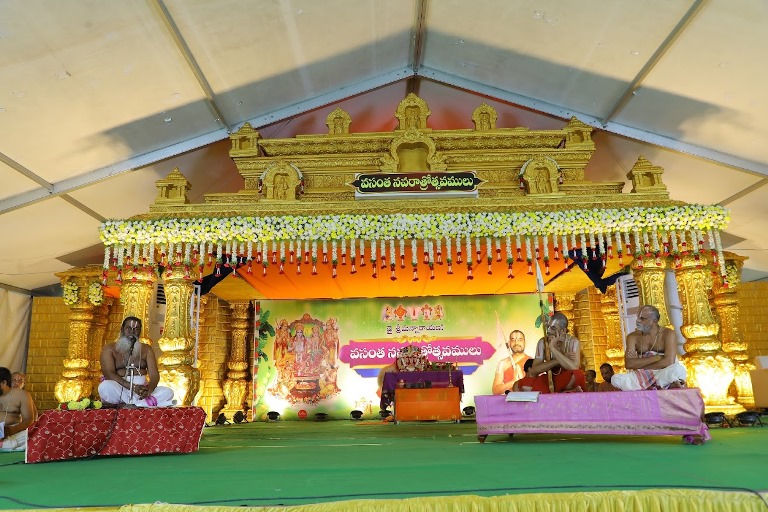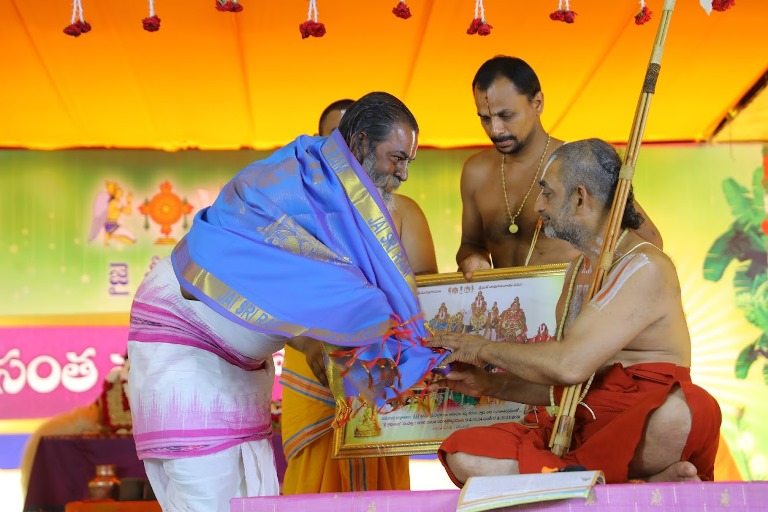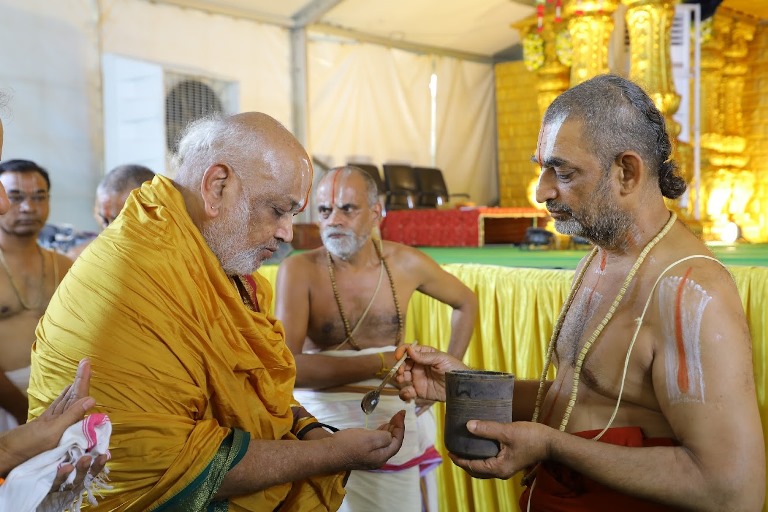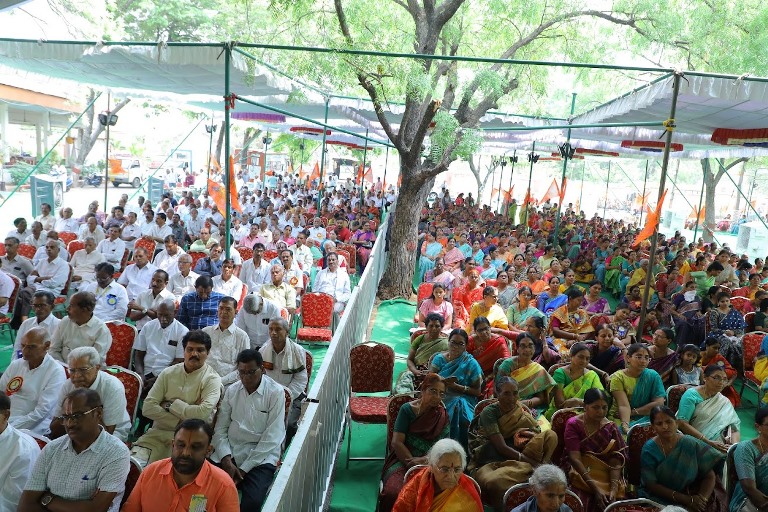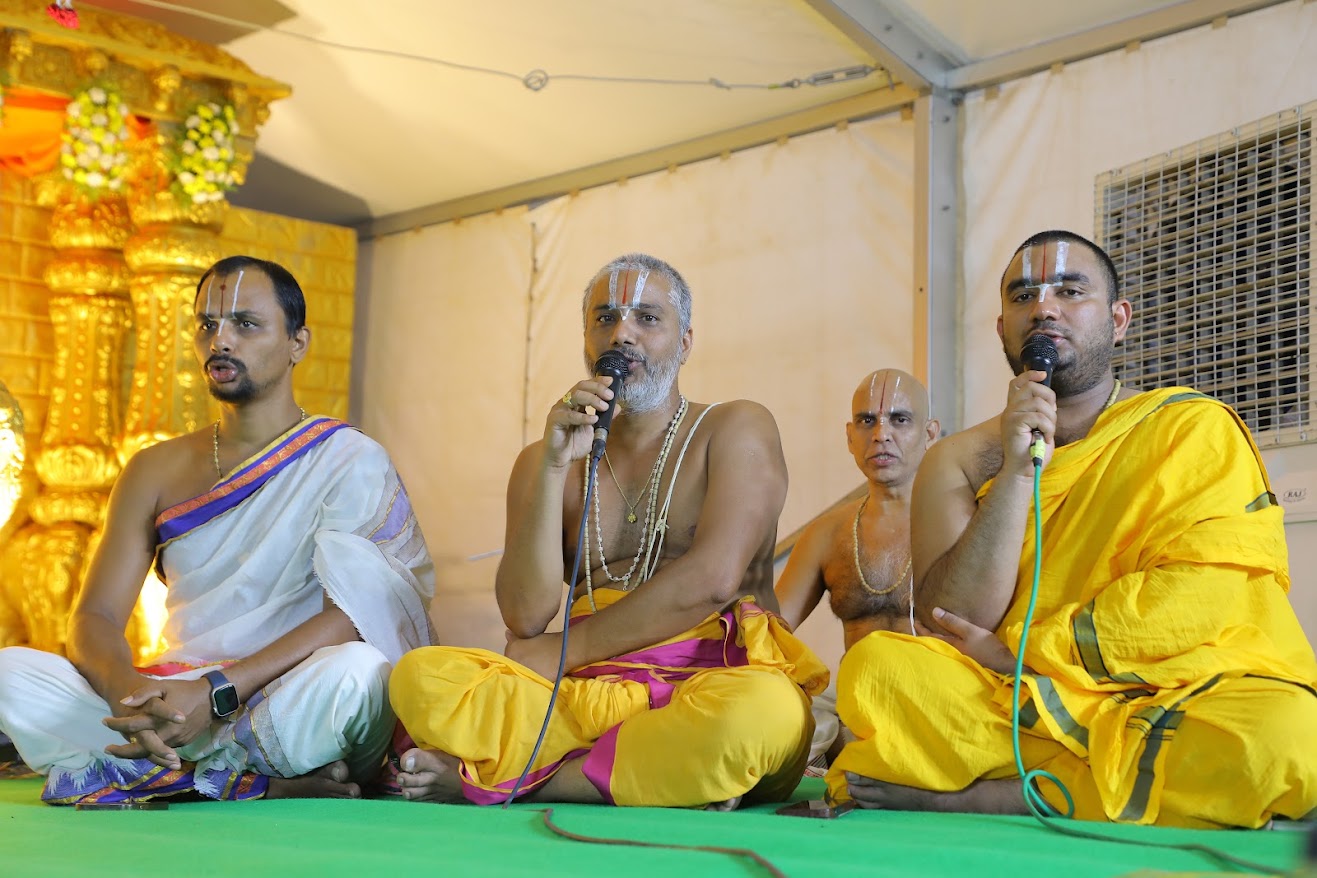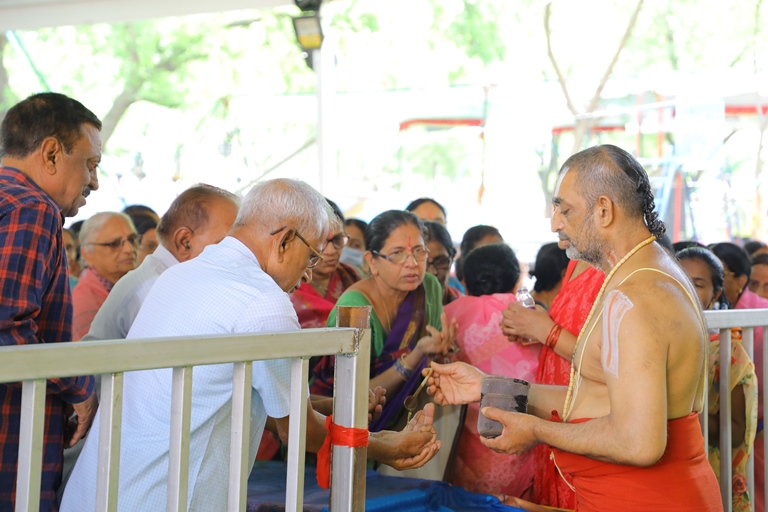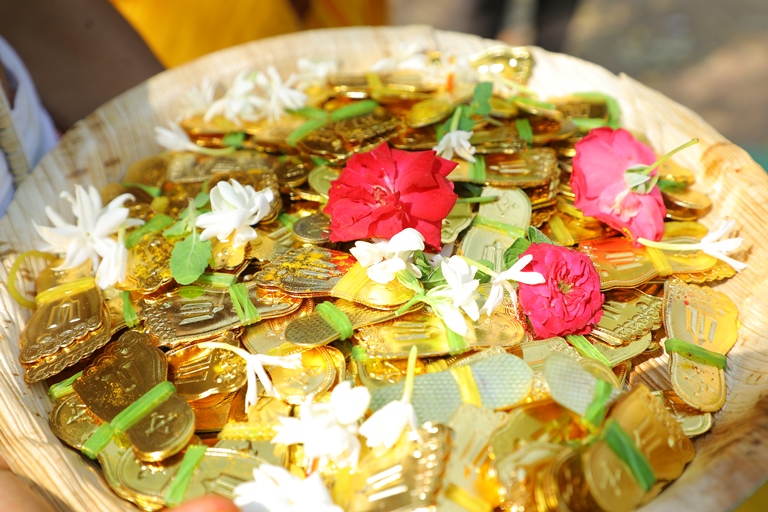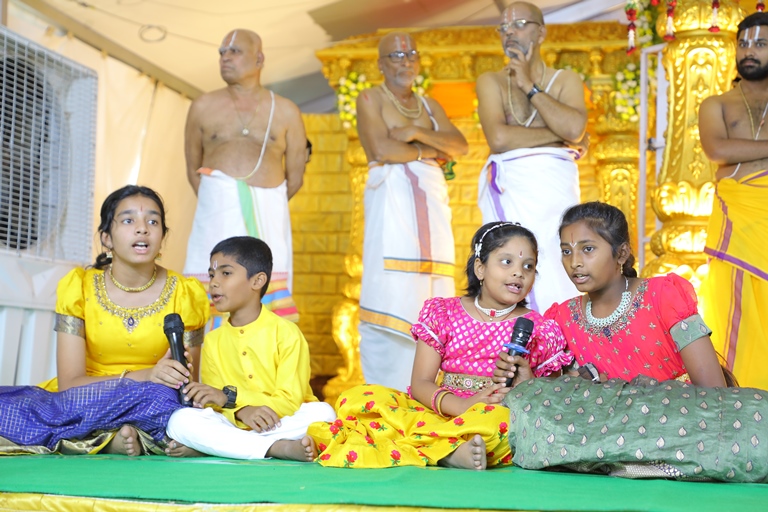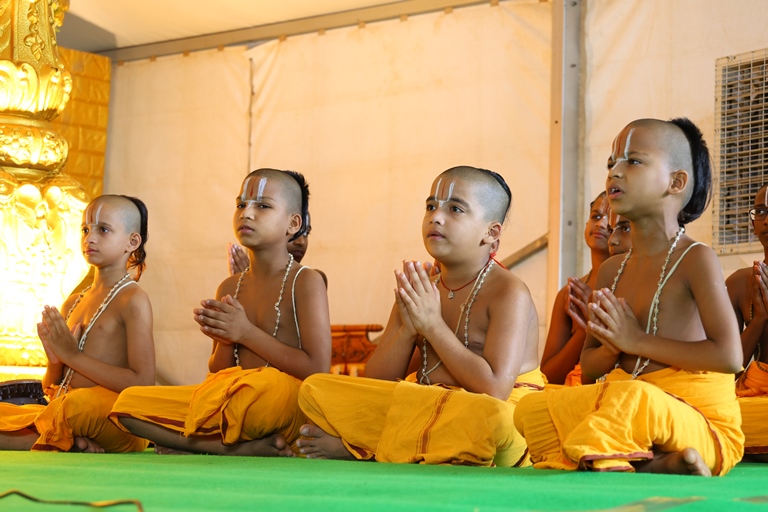A fresh and new beginning starts with clarity of mind. One day, the mental state of Sage Valmiki was so clear that he outpoured a beautiful poetic expression with two levels of artha, meaning. One offered the external view of a situation while the other offered the internal deeper sense of the same. The same verse paved the path to the recording of the greatest history in 24000 verses named SriRamayanam, holding the eternal secrets of life.
The first level artha of the verse…
ma: nisha:da prathistha:mthvam
agamaha sa:svathi:ssama:ha
yath krouncha mithuna:th e:kam
avadhi:h ka:ma mo:hitham
Sage Valmiki saw a hunter shooting a male bird who was relishing his female partner’s warm company. He felt extreme pain for the state the female bird was left with. Immediately, he cursed the hunter that he would end up suffering the same state. The outpour was unplanned. It resulted in a rhythmic verse, the first poem in the history after Veda.
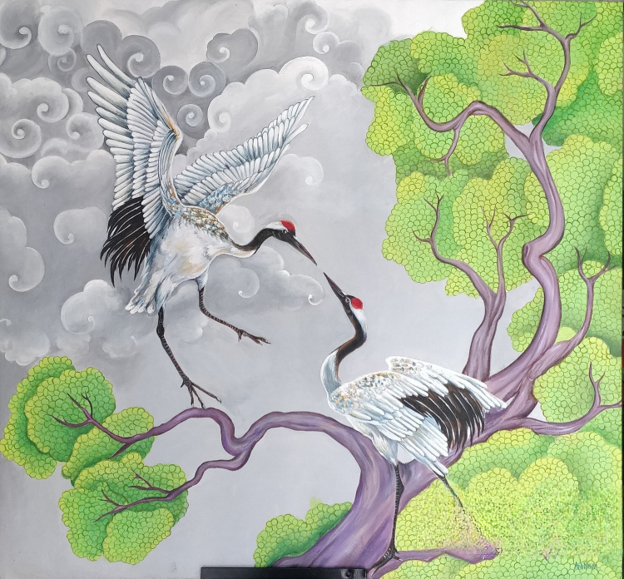
There were many times that the sage saw similar incidents. However, that day was different. His state of mind was clear.
Why was that day different for Sage Valmiki?
It was just then that Sage Valmiki heard a brief note of an ideal human, Sri Ramachandra from Maharshi Narada. Having heard such great glory, his mind was in a clear state.
The clear state of mind is sathvic (calm and composed) in nature when rajas (smoke filled – restless active and agitated) and thamas (darkness – inertia and closedness). When satva guna is high, the mind is clear letting one see things as they are.

In that clear state of mind, he saw things as they are…
What does it mean to ‘see things as they are’?
We see ourselves as the body when in fact we are the soul dwelling in the body. We see ourselves as the doer when in fact it is God who is indwelling enabling us with all necessary energies required to do our activities.
When one sees things as they are, it is nothing but thatthva sa:ksha:thka:ra, realization of ultimate realities. The knowledge of the thatthvas is beautifully stated in Upanishads as…
bho:ktha bho:gya pre:rithamcha matthva:
jushtaha thathaha the:na amruthatthvame:thi
When the ultimate realities: bho:ktha (one who is ‘eating’), bho:gya (the ‘food’) and pre:ritha (the support and enabler) are clear to us in the mind, we will see everything the way it should be seen. We will attain amruthatthva, immortality, everlasting joy.
The bho:ktha, female bird experienced bho:gya, painful emotion. The pain reaches pre:ritha, God. Another bho:ktha, sage Valmiki felt the same pain because he realized the same pre:ritha, God within himself. That is why, a clear mind feels the pain of suffering and the joy of those in pleasure because of the uniting bond with everyone through God. This inner deeper sense of realization will always seek the glory of God…
The second level artha of the verse…
ma: nisha:da prathistha:mthvam agamaha sa:svathi:ssama:ha
yath krouncha mithuna:th e:kam avadhi:h ka:ma mo:hitham
ma:nisha:da = Srinivasa, One with mother Lakshmi in His heart
may You be worshiped eternally for killing one [Vali and Ravana] from the pair of rakshasas infatuated with wrong desires.
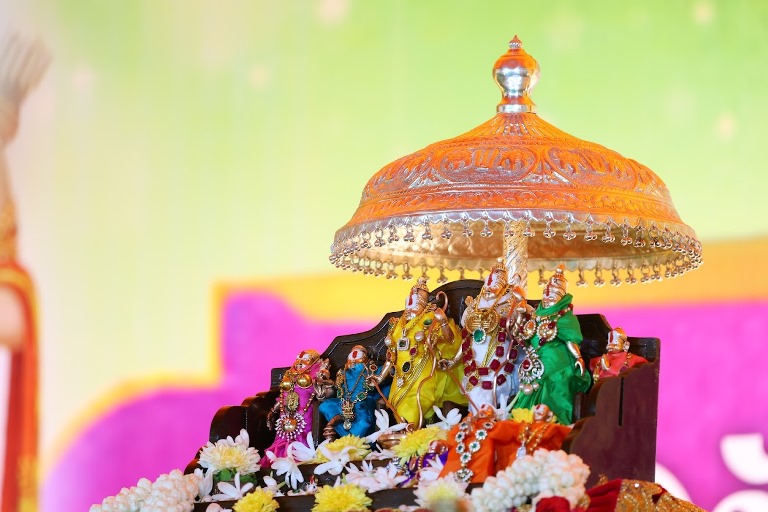
When one has a clear mind, not only will one realize the eternal realities, thatthvas but also outpour thought, words and actions in a perfect and divine manner. That is why the second side of the first verse contained the mangalasasanam, the auspicious well-wishes to the Lord Himself out of devotion…
Shall we all aim for a fresh new beginning this new year with a clear mind realizing of things as they are?

– From the discourses of HH Chinna Jeeyar Swamiji
– Vasantha Navaratri Uthsavam,
– Padma Nayaka Kalyana Mandapam
– 9th and 10th April 2024
HH Chinna Jeeyar Swamiji graced blessings to everyone in view of Ugadi and the Vasanthanavaratri Uthsavams, the 9 day celebration at the onset of season Vasantha.
SriRamayanam is a scripture that one must learn from to welcome a new beginning as the new year Krodha sets in on the day of Ugadi.
If we live in accordance with guidance from Elders as per the sasthra, God will show krodha (anger) on those who purposely cause problems to us on the path.

